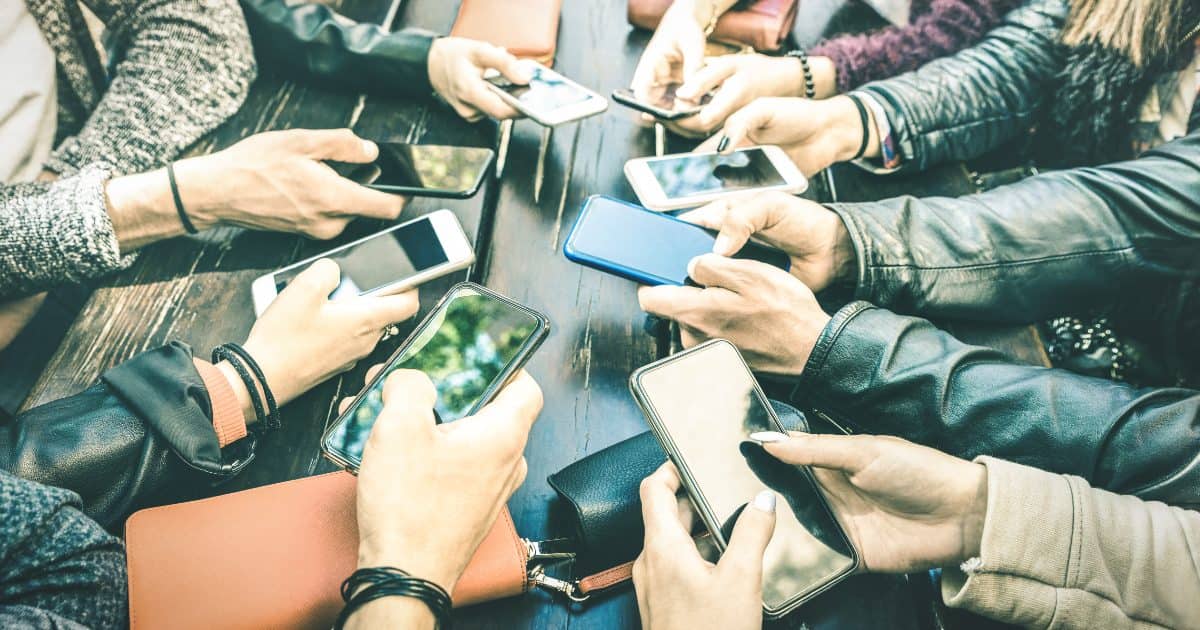Wired is publishing a series on parenting, and this article is written by a father who monitors his teens’ electronics.
Later, after discovering my daughter had secreted a contraband Chromebook in her room to watch late-night Friends, all devices would be sequestered in the master bedroom overnight.
And this rule was above all else: The devices all belong to me and my wife, and we are entitled to see anything and everything on them.
I didn’t get a cell phone until I was in college, so my parents didn’t have to worry about me blasting my teenage cringe online. At the same time, this guy sounds like the type to physically remove the door to his kid’s room so they can’t hide from him.
Check It Out: Privacy, Parenting, and Monitoring Your Kids’ Electronics

At the risk of over-exposure, as you’ve intuited, the need for monitoring is less about age than it is child or teen – specific. The monitoring takes on different hues, and fords different challenges, as both the child and parent grow. This is true of all of parenthood, but assumes a peculiar relevance with social media and other online activities. During one of my stints overseas, I lacked extended routine online access. When I returned home after several months, it became clear to me, monitoring my then teen aged daughter’s activity, that she was being groomed by a paedophile posing as another teenager. Alternatively, he may have been a trafficker; they use similar grooming techniques. My daughter vehemently objected to my intervention at the time. Had I been less intrusive, however, we might today be minus one beautiful daughter; a fact that she now appreciates. I remain grateful that I returned home in time and immediately checked in on my kids.
The point is, online activities pose unique challenges that can be not only life altering, but non-recoverable, and make an obligatory case for parental monitoring and engagement. Whether it is cyber-bullying, particularly with young kids, access to graphic content whether sexual or terror-related, grooming by predators and hate groups, augmented peer pressure to engage in high risk behaviour, or, as too many parents have discovered, open encouragement to suicide – there are challenges to protecting your child and adolescent online that have few ‘meat-space’ comparisons.
There are no manuals, but there are increasing lessons that we as parents, alas far too slowly, are compiling into consensus online parenting etiquette that for our offspring will be as natural as teaching their own children to play catch, street-crossing safety, or how to drive the family car.
Andrew:
I love that line, ‘…blasting my teenage cringe online’; a clear and colourful descriptor.
Thankfully, once one grows to adulthood, the likelihood of blasting their adolescent cringe online falls to naught. Just imagine if an adult rose to prominence, or held high political office, and blasted juvenile cringe on publicly available social media; what turmoil! Hence, we need those responsible adults to monitor such adolescent, and indeed preadolescent postings to keep that cringe in check and guide wayward minds aright.
That said, I am one of those dads that kept close tabs on his kids’ social media posts, and more than once, had to step in and impose moderation or de-escalate needless confrontation. Parents have always guided their kids in social skills. In the pre-social media era, such guidance was crucial to my own upbringing by my elders and mentors.
Social media has become a skip lesion in modern parenting with many parents simply too tech naive to move into an important social sphere where they can provide such guidance, but it does not mean that it is any less important than any other social skill – indeed evidence suggests that it is one of the single most important with long lasting effects on relationships, and social and mental hygiene.
I made my kids’ access to devices and social media conditional upon my being able to monitor their social media activity, unapologetically and without remorse, and applaud similar actions by other parents. It is, today, core guidance for protecting child health and welfare.
That’s a fair point. I’m not a parent so I don’t have experience in this area. I definitely agree that young kids should be monitored online. But this guy’s kids were teenagers, and in my opinion once they get older they should have a bit more privacy. But that obviously depends on their maturity level.